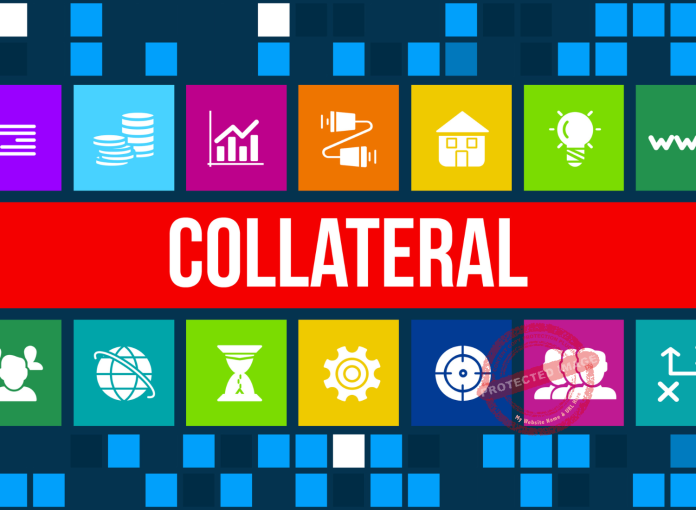Several funding options are available to businesses that need financial assistance to carry out their processes; one of the most common options among these is loans. However, some loans are secured in that a business owner would need collateral to get such loans. Collateral is a very important factor when it comes to business loans. Therefore, as a business owner, you need to know the answer to the question, “what is collateral in business?”.
Whether you are considering getting a loan now or not does matter.
Knowing more about this topic would help you out in the long run.
Businesses take loans for different reasons, from kick-starting to buying new equipment, expanding the business, etc.
So, while it may not seem like something you need now, you may consider getting a business loan soon.
Therefore, isn’t it best to learn all you can now?
Luckily, this article has been written to help with all that.
Here, you will learn everything you need about collateral in business, from what it means to the various types, its advantages and disadvantages, and so much more.
Let’s dive right in!
Meaning of Collateral – What is Collateral in Business
In the business world, collateral refers to any asset that a borrower pledges to a creditor as security for the amount they borrow.
Creditors want to be sure that a borrower can repay what they borrow.
This is why many creditors ask for security to help ensure that the borrower upholds their end of the bargain and pays up the loan.
Collateral acts as a buffer in this case.
It’s an asset that the borrower will offer when getting the loan.
And if they default and end up not paying back, the creditor can assume ownership of the collateral.
For instance, you need to take a loan to buy new equipment for your business.
The agency or individual you wish to borrow from then asks you to give up something to get the loan.
You can then offer a business asset like your company’s vehicle as collateral.
This would reassure the lender that you would pay back the loan.
However, if you cannot repay the loan, the lender would seize the vehicle and sell it to get their money back.
It is in this way that collateral secures a loan.
This is why loans backed up by collaterals are known as secured credit.
On the other hand, loans that aren’t are called unsecured credit.
However, you should know that just because someone pledges collateral does not mean they won’t have to go through the other processes required for risk management when taking a loan.
As a creditor, you still need to carry out the best risk management practices before giving anyone a loan, even if they have collateral.
How Collateral Works – What is Collateral in Business
From the section above, you should have a clear understanding of this concept already.
But what makes it work?
What are the technicalities behind collaterals?
Let’s take a quick look at that.
For an asset to become collateral, the lender has to register a charge over the asset.
They can do this using either a floating or fixed charge; in this case, another name for a charge is liens.
Fixed charges are typically used for specific properties like buildings or assets with unique identifiers, for example, vehicles with serial numbers.
Once the lender registers the lien, the borrower can continue using the asset.
However, they cannot sell it without the knowledge of the lender.
The lender has to be aware if the borrower decides to sell off an asset registered as a fixed charge.
Floating charges are more commonly used in the business world.
The lender would register the charge using the General Security Agreement if a business wants a loan.
This agreement makes it easier for creditors to take assets that are hard to identify (for example, inventory) as collateral.
Once the borrower pays back the loan completely, the creditor’s charge will be legally discharged.
However, if the borrower cannot repay the loan, the creditor can then sell off the creditor and use it to recover the remaining loan amount and attached interest.
Sometimes, collaterals are auctioned off, and the creditor may get more than the amount the borrower owes.
If this happens, the creditor would take out the money they owe, plus the accrued interest, and then share the remaining amount with the business stockholders.
Types of Business Collateral – What is Collateral in Business
Different creditors often require different collateral based on the loan amount and other requirements.
The collateral you use to get a loan also depends on the borrower’s situation.
However, knowing the different options would make it easier to pick the best option.
With that said, let’s look at some types of collateral below.
Real Estate
A lot of businesses opt to use real estate as collateral for loans.
Real estate is also a common choice among creditors.
This is majorly due to the stability real estate offers.
Real estate is known to retain its value and even appreciate over time.
So, creditors have nothing to fear when taking real estate as collateral.
Also, because real estate is often worth a lot, it gives the borrower a higher chance of getting more funds.
This is the major advantage of using this type of asset as collateral.
However, it has a big downside too.
If you fail to repay the loan, you can lose a valuable asset.
Business Equipment
This is when a business owner uses equipment they use for their business processes to secure a loan.
Using business equipment to secure loans is common among manufacturing and constructing businesses.
This is because their equipment is usually worth a substantial amount.
However, business equipment as collateral is a relatively safer option when compared to using real estate.
Sadly, because this asset may have been in use for a while, it may not be that valuable.
Even when it hasn’t been used for long, its value is still an issue because pieces of equipment are susceptible to wear over time.
Therefore, because of this issue in value, getting a big amount with this collateral may be challenging.
Another drawback of this option is that creditors aren’t so keen on accepting this option.
This is because, depending on the type of equipment, they may pose some liquidity problems.
So, if the borrower cannot pay back the loan, the creditor may have an issue finding a buyer for the asset.
And then they would end up with an unwanted asset and no way to get their money back.
Invoices
Many businesses, especially construction companies, have to deal with late payments and outstanding invoices.
That is, their customers may patronize the business and then not pay up when they should have.
This often results in cash flow problems for the company where the money would be leaving the company (for its processes) but won’t be coming back in (from sales).
When this happens, the company would need extra funding and may likely turn to creditors.
Due to the peculiar situations, some creditors will accept to register charges over the outstanding invoices.
So, businesses can get the cash they need without waiting for their customers to pay them.
While they may be getting equivalent cash to what their customers owe them, the business still has to pay the loan interest and fees.
This is the major downside of this type of collateral because the business would technically lose money as they will get less cash than if their customers had paid them directly.
Inventory
Businesses that sell products, for example, a retail store, can use their inventory (products they have in stock) to secure loans.
This is risky because it puts the entire business on the line.
If the business cannot pay back the loan, it will lose its inventory and be unable to make revenue and profit.
This could, in turn, cause the business to go bankrupt.
Other than this, another reason this is not a very common option is that many creditors would not accept this option.
Like business equipment, inventories also have liquidation issues.
Creditors may not accept this option because they may have difficulty selling off the asset to make their money back.
Cash – What is Collateral in a Business
Most traditional creditors, like banks, prefer this option to every other one on this list.
This is because the asset is already liquid and has no liquidity issue.
If a borrower does not repay the loan, the creditor does not have to sell the asset to generate cash.
They would claim the charge on the asset.
So, finding a creditor with this option won’t be difficult.
Another significant advantage of this option is that since the creditor does not have to go through stress to liquidate the asset, they often offer lower fees and interest rates to customers pledging cash collateral.
Therefore, if you have some personal funds or extra money in your business account, you can use this to back up your secured loans.
This would offer you several choices regarding creditors and loan terms.
However, you should know that Fintech creditors do not usually accept this option.
Investments
Selling off investments and getting cash for them is relatively easy since they are already liquid assets.
Therefore, this option is also common among traditional lenders like banks.
However, just like with cash, some creditors do not usually accept them.
Investment collateral includes assets like stocks, bonds, mutual funds, and so on.
One disadvantage of this option is its value.
The value of investments is typically prone to fluctuation, often depending on the market conditions.
Due to this, it can become a dicey matter if the investment collateral’s value depreciates below the loan amount.
Blanket Lien – What is Collateral in Business
The blanket lien is a very risky collateral option for borrowers.
All the options discussed so far only cover one type of asset.
If your house is collateral, you will lose your house if you are unable to pay back the loan.
Same thing for if you use your inventory, investment, cash, equipment, and so on; you’d lose just that asset.
But this isn’t the case with a blanket lien.
This option acts like a blanket in that it covers all the borrower’s assets.
So, if you use this option and default on the loan, the creditor can seize all your assets.
This option offers a lot of protection for creditors.
But it is very risky for borrowers.
If you cannot repay the business loan, you may lose everything your business owns.
Banks are more likely to use this option.
Pros and Cons of Collateral Loans – What is Collateral in Business
Securing a loan with collateral is a great way to increase your chances of getting a business loan.
This is especially true for new businesses that are yet to build credit.
However, while it may seem so advantageous from the surface, collateral loans also have drawbacks.
As a business owner looking to secure a business loan with collateral, you need to consider the option from all angles.
You have to consider both the advantages it would offer your business and the disadvantages you may encounter if things go south.
This article will list some of collateral loans’ major pros and cons.
This way, you will have a more holistic view of the topic, and you’d be able to make a better and well-informed decision.
Pros of Collateral Loans
The following are the major pros of collateral loans:
Increases your Chance of Getting a Loan Even with a Limited or Low Credit Score
Getting a business loan can be difficult if your credit score is low or your credit history is limited.
However, with secured loans, you can become more accountable.
Your collateral will reassure the creditor that you will be committed to paying back the loan.
And even if you do not pay back, the creditor can sell off the asset to recover their money.
So they would feel more at ease giving you a loan despite your credit history.
Increases your Chance of Getting More Loan Funds
Also, because the creditor has something to fall back on in case you default, they may be willing to adjust the loan terms.
This can help you get a larger amount of money.
Can Help Build Your Credit Score
If your business is new, then its credit history will be limited.
This would make it difficult for you to get loans that you can use to grow your business.
However, getting a secured loan may not be difficult, even with your limited history.
You can take secured loans to build your business credit to the point where you can apply for and get other types of loans.
Reduced Interest Rate
Secured loans generally have lower interest rates than unsecured loans.
This is because unsecured loans do not offer creditors any security.
If the borrower defaults, the creditor has nothing to fall back on.
But this isn’t the case with secured loans; these offer creditors security.
Therefore, they do not take as much interest rate when a loan is secured.
Con of Collateral Loans
The following are the major cons of collateral loans:
Could Lead to Loss of Asset
If you, as the borrower, fail to repay the loan, you most likely would lose the asset you used as collateral.
The creditor would have to liquidate the asset to repay the money you owe.
This can badly affect your business depending on the type of collateral you use.
Relatively Longer Process
The process of getting a secured loan may be longer than that of getting an unsecured loan.
This is because the creditor will have to take their time to value and appraise the asset that you are pledging.
They would only approve the loan application once they are sure of the value of your asset.
The wait can be quite unnerving and frustrating.
Especially if you urgently need the cash you would get from the loan.
Some business owners do not choose this option for this particular reason.
Getting a Business Loan Without Collateral – What is Collateral in Business
If you have considered the downsides of a secured loan and would not back up your loan with collateral, then there are other options.
There are several unsecured loans that business owners take to finance their businesses.
Finding your options is the first step to getting a business loan without collateral.
You can take a bank loan, online loan, or SBA loan, or your family and friends can even borrow the needed funds.
However, if you want to take a business loan without collateral, you should know that the loan terms would differ.
For starters, the interest rate would be higher than that of a secured loan.
This is because the creditor does not have major security for borrowing money.
There may also be certain requirements that you would have to meet to get the loan.
For instance, some of these loans require anybody that owns more than 20% of the business to offer a personal guarantee.
This gives the creditor legal right to the person’s assets.
If the person does not repay the loan, the creditor can seize their assets to recover the money.
This means business loans without collateral can be as detrimental as those with collateral.
You would spend more money getting the loan and may still lose your assets if things go south.
Conclusion on What is Collateral in Business
Wouldn’t it be great to be able to raise money for your business without a loan?
Sadly, all fingers are not created equal, the same way all businesses are not equal.
While some business owners may be able to get by depending on their personal finances, other businesses are capital-intensive, and loans may be their only viable source of survival.
This is why we cannot totally rule out the idea of collateral in business.
Collateral can help business owners get the needed funds from their business through loans even when they do not have a great credit history.
However, if the business owner defaults on paying the loan, they may lose their assets.
This is why despite the benefits of getting loans with collateral, you should be very careful with this process.
Before applying for it, ensure you can repay the loan.
This would reduce the chances of losing your business and personal assets.









